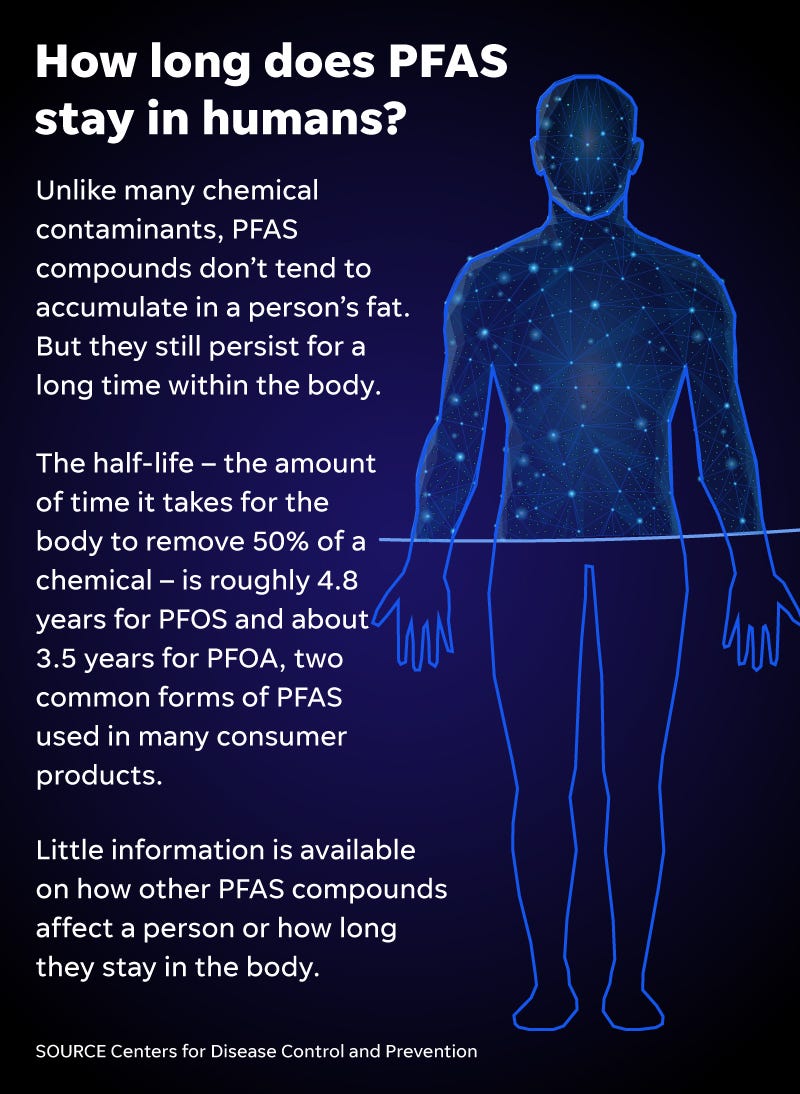3M will stop making 'forever chemicals.' What to know about their link to cancer, health risks
 Marina Pitofsky
Marina Pitofsky3M announced this week that it will stop making chemicals commonly known as “forever chemicals” and stop using them in its products in the coming years.
The company, which makes a slate of products ranging from cleaning supplies to building materials and medical products, said in a Tuesday statement that it “will exit” manufacturing per- and polyfluoroalkyl substance, known as PFAS, and “work to discontinue the use of PFAS across its product portfolio by the end of 2025.”
The company said in the Tuesday news release that it has “already reduced our use of PFAS over the past three years through ongoing research and development,” but will continue its efforts.
But what are forever chemicals? What are the effects of the chemicals? Here’s what you need to know.
Study:Rainwater is now unsafe to drink worldwide because of 'forever chemicals'
'Do not eat':High levels of toxic ‘forever chemicals’ found in deer and fish
What are forever chemicals?
PFAS is a category of of man-made chemicals that do not break down easily in nature or in living tissue. They were discovered in 1938, when a chemist working on refrigerants created a slippery substance that would later be critical in the creation of the Teflon brand of nonstick pots and pans.
As of February, the U.S. Environmental Protection Agency lists approximately 12,000 kinds of PFAS.
What products contain forever chemicals?
They’re found in a wide range of household items, often used to make coatings and other applications, such as repelling water, heat, oil or grease. They can be found in items such as cookware, firefighting foam and clothing, as well as food packaging, cosmetics, furniture and more.
What are the health effects of forever chemicals?
The chemicals have previously been linked to a slate of health problems, including cancer, thyroid disease, liver disease and low birth weight. They have also been shown to make vaccines less effective.
A study published earlier this year suggested that it’s unsafe to drink rainwater around the world because of the presence of forever chemicals.

Are lawmakers doing anything about forever chemicals?
U.S. environmental regulators have designated the chemicals as hazardous substances, and state officials across the country have taken steps to target the chemicals.
The EPA earlier this year released health advisories for toxic forever chemicals that are known to be in U.S. drinking water systems. The advisories cut the safe level of PFOA, or perfluorooctanoic acid, by more than 17,000 times what the agency previously said. The safe level of a related chemical, perfluorooctane sulfonic acid, was reduced by a factor of 3,500.
3M, DuPont and other manufacturers reached an agreement with the EPA in 2006 to phase out PFOA and PFOS, in the U.S.
Contributing: Kyle Bagenstose, Scott Gleeson and Wyatte Grantham-Philips, USA TODAY; Associated Press